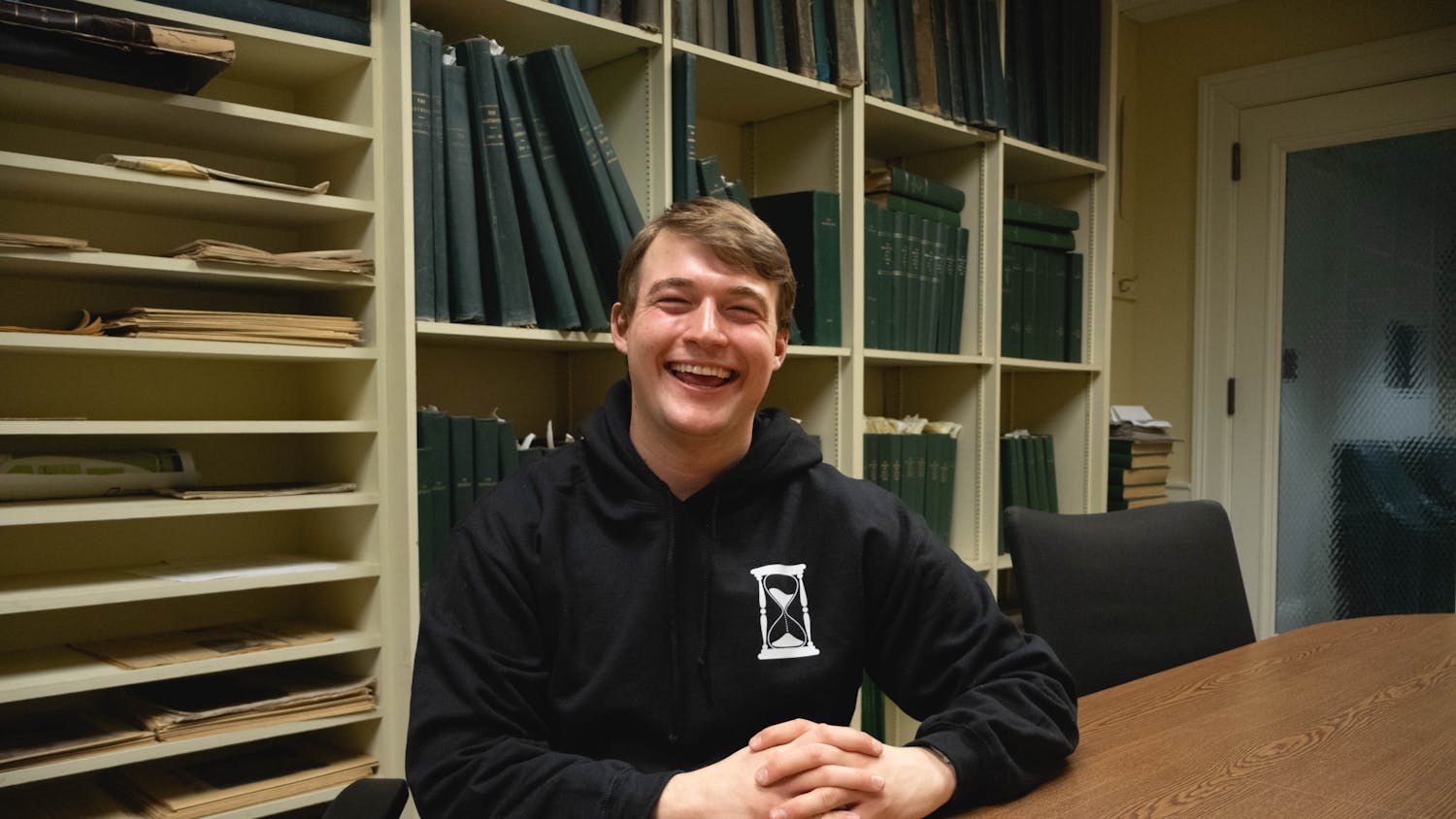Members of coeducational fraternities and undergraduate societies seem equally upset by the reforms mandated in the Trustees' recent social and residential life initiative -- although the reforms would include formation of more coed houses similar to their own.
"To me, it seems that they want to get rid of the entire system and that is attacking my house," coeducational fraternity member and Tabard President Sarah Harris '00 said.
Harris, who read the letter sent by the Board of Trustees two weeks ago, said she "was really shocked at how ambiguous the letter was" and marked its contrast to the articles printed in The Dartmouth and The Boston Globe.
The letter outlined five principles, one of which suggested that the social and residential options be "substantially coeducational."
In an interview with The Dartmouth, College President James Wright said that the current single-sex Greek system is not one of inclusion, and with the coeducational changes he hopes Dartmouth will be a place that "can share more fully in the life of the community."
"I don't think making something coed necessarily makes it exclusive or not exclusionary," Phi Tau President Virginia DeJesus-Rueff '00 said. She cited the East Wheelock cluster as an exclusive and coed residence.
"In terms of exclusionary, I think that the fact that we came here to Dartmouth is exclusionary," said DeJesus-Rueff.
DeJesus-Rueff said Phi Tau has a clause in its constitution stating that all Dartmouth students can potentially be members of the group. Phi Tau broke from its parent fraternity, Phi Sigma Kappa, in 1952 when the national group did not include blacks or Jews, and when the College went coed, Phi Tau immediately changed over with the school.
"We're pretty close to what they're looking for: we're dry, we're coed," DeJesus-Rueff.
However, she added the house does not meet all of Wright's criteria: "we're not 100 percent open, in the sense that anyone applies gets in ... we invite the entire community to rush, but that doesn't mean that everyone in the entire community will get a bid."
DeJesus-Rueff said the house keeps this policy because "we're accountable for the members of our house, so we're selective."
A member of Phi Tau who asked not to be identified said that changes in the rush system that the Board plans to institute would definitely affect the house.
"In our particular case it may be that we're not very exclusive with rush, however, we still have the possibility of being exclusive," the member said.
At the February 13 rally on the Psi Upsilon lawn, Alpha Theta president Mike Holmes '00 said "the option to join a coed house is already available," adding "the supply of coed houses already meets, perhaps even exceeds, the demand."
"If they want to join a coed house, the option's here," said Harris.
Harris, who did not participate in sorority rush, said her decision to join the Tabard had "very little to do with the fact that it was coeducational." She said if she had found these options in a sorority, she would have been as willing to join that group.
Similarly, a member of Phi Tau said, "I joined Phi Tau because of the type of people who are here: I didn't so much choose to join a coed as I chose to join the brothers here at Phi Tau."
Amarna membership chair Katie Stark '00 said she thinks "being coed is just an inherent part of our ideology of being open to anyone," rather than the key factor in decisions to join the group.
"I do feel that women and men, younger people and older can have equal opportunity to have leadership in a in a coed house," she said.



